
WORMHOLES:COSMIC SHORTCUTS
What if you could rocket from Earth, not to the Moon or Mars, but down a wormhole that loops all the way across the vast Milky Way, slashing travel time
The multiverse theory is one of the most fascinating and mind-bending ideas in modern physics and cosmology. It suggests that our universe, with its vast galaxies, stars, and planets, might not be the only one. Instead, there could be an infinite number of universes existing in parallel, each with different laws of physics, dimensions, and realities. This radical notion raises profound questions about the nature of existence, free will, and the structure of reality itself. While it remains a theoretical concept, the multiverse theory has captivated scientists, philosophers, and science fiction enthusiasts alike.
What Do We Mean By Multiverse Theory?
For a long time, cosmologists have introduced the idea that our universe is just one of the instances among the numerous multiverse universes. There are several categories of the multiverse theories all of which stem from distinct branches of physics and cosmology. They include those from quantum physics theories right to string theory and inflationary universe theories. It is true that each of these concepts has a different setting and different features, though there can be said one thing — the existence of the multiverse is suggested and has features beyond our universe.
There is a version of the multiverse theory called inflationary cosmology: Suddenly after the Big Bang, the Universe expanded rapidly. This inflation could have led to areas of emptiness to grow into different worlds with different laws of physics. In this framework the universe that we see is only one bubble in an endless bath of bubbles of universes.
The many-worlds interpretation of quantum mechanics is another explanation of the existence of the multiverse; it proclaims that in fact, every single one of the potential outcomes of any given quantum event Owen argues that this infinity of individually real universes makes the concept of the multiverse terrifying. All those choices we make, all that randomness created by quantum uncertainty, results in another universe, in which everything that can happen will happen. In this comparison, it can be stated that there can exist an infinite number of selves living a different life in different realities.
If the multiverse exists, what can it offer?
Should the multiverse theory turn out to be real it brings a fresh set of tantalizing and mind boggling possibilities. Perhaps the most enticing one which presents itself is the scenario of other worlds that carry different laws of physics. In some of these universes stars might not exist, gravitation could be stronger or weaker, and time might have properties completely different then those we are familiar with. This suggestion that in different universes different scenarios might exist will mean that almost anything could exist.
The multiverse could also provide a solution to one of the great mysteries of modern science: the fine-tuning problem. A few specific constants (like gravity, the charge of electrons and so on, which should have been different physically so that stars, and planets and life do not exist) seem to be perfect for the existence of stars, planets and life. One important point when it comes to a multiverse is that each of the universes could have different physical constants. The majority of these universes would be lethal, yet a few—here includes us—would by a twist of fate be appropriately constituted for life to occur. This eliminates the requirement for a “special” origination story to briefly explain why our universe appears so accommodating to the prospect of life.
Besides the scientific side the conclusions of the multiverse theory are rather philosophical. It simply raises the issue of free will to a new level if every single decision, and every possible consequence thereof, puts us in a different universe. Sometimes you might have chosen one career path in one universe while in another universe, you might have completed a whole different life. This concept alters the perception of self and brings into questions issues of choice and destiny.
The Paradoxes of the Multiverse
Nevertheless, the multiverse theory is not without difficulties and paradoxes as well as the very ideas discussed above reveal. It is for this reason that is easily considered to be one of the most serious problems; that of testability or lack of it. Scientific process focuses on observation, measuring and experimentation to support tested theories and hypotheses. Yet by definition, other universes extra-multiverses are not within the range of our perceptibility. As stated, because the parallel existent universes cannot be touched, spoken or observed then it becomes hard to tell whether the multiverse theory will ever be scientifically proven. Due to the lack of relate empirical evidence, some of the critics where criticizing that the multiverse is not a scientific theory at all.
The first paradox is called the quantum suicide paradox, the second one is connected with the many-worlds interpretation of quantum mechanics. But if each phase space point gives rise to a new universe, there are as many intelligible universes as there are distinct possible outcomes, and must hence be an astronomical number of universes. This leads to the question: what becomes of the other versions of “us” that are existent in other parallel realities? If we consider an actual infinity of worlds and that billions of these worlds are created every day, is it then true that every apparently statistically improbable event happens somewhere? This gives rise to an element of paradox, in that, they are as ‘real’ as the next person regardless of how fantastical such realities are.
Another issue embodied in this task is the idea of a regressive infinite series. Meaning if there are infinite universes does this mean that there are an almost, or actual, infinite number of multiverses, consisting of their own universes? This recursive concept may give rise to an impression of cosmic nihilism, in which the actuality of existence also turns into an infinite series of universes begetting other universes with no known starting or concluding point.
The Scientific Debate
The theory of the multiverse is still widely discussed, but very few of its aspects are proved. Critics do not understand why such a theory is necessary or why it follows from certain interpretations of quantum mechanics and inflationary cosmology. For instance, string theory which aims at unifying quantum mechanics with general relativity posits that there can be more dimensions and other realities that are out of reach of human understanding.
However, the provocation of the multiverse theory has been criticized as it has no proof of existence and hence cannot be disproved – and the cornerstone of science; the provocation of the theory is unfalsifiable. It is also notable that some physicists seem to think that the multiverse theory is less of a scientific paradigm and more of a kind of worldview. Some assert that knowledge and development in several years and even centuries in the fields of technology and theoretical physics might give clues about the existence of the multiverse.
Conclusion
It is one of the boldest concepts in science which greatly extends our definition of what could be out there beyond the physically imaginable. It presents an attractive perspective as to the character of reality, from overturned diverse physical-field laws in various universes to splitting numerous parallel worlds at every quantum choice. It also brings deep tensions at the same time, including the problem of measurability, as well as the existence of endless universes.
As of this writing, the concept of multiverse is still firmly rooted in the realm of physics, but its consequences are far from the domain of the imagination, hence the scientific curiosity and continual contemplation. That we may perhaps never pinpoint as any other universe in the multiverse, the concept represents a fertile ground in the cosmic puzzle to force us into thinking harder about space beyond and even the layer of reality we live in.

What if you could rocket from Earth, not to the Moon or Mars, but down a wormhole that loops all the way across the vast Milky Way, slashing travel time
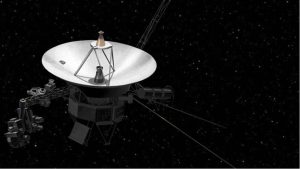
If you go outdoors on a clear evening and also search for it, you might have the ability to see Jupiter beaming brilliantly amongst the celebrities. At the exact same
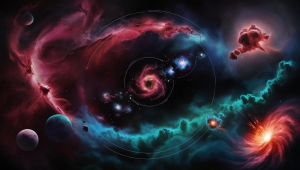
Stars, the dazzling points of light that fill up the evening skies are the foundation of galaxies plus the cradles of life itself. From their birth in large clouds of
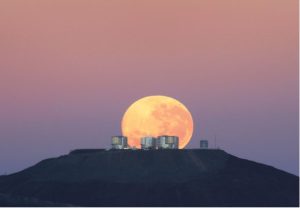
In the mission to recognize deep space mankind has actually developed progressively effective devices to observe deep space. Completion of this venture is the Extremely Large Telescope (ELT) which is
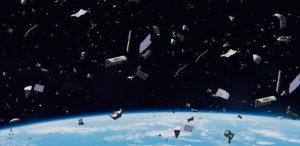
Space debris, also known as space junk, refers to the defunct artificial objects orbiting Earth. These objects include decommissioned satellites, spent rocket stages, and fragments from collisions and explosions.
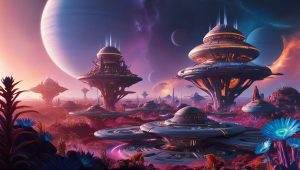
The search for exoplanets– planets that orbit stars outside our planetary system– has actually quickly developed into one of the most interesting and dynamic fields of astronomy
Write to
Jasmine Gogoi at csr@scientifictemperament.com
Let’s develop our society with a scientific heart. Join us to build the scientifically nurtured future →